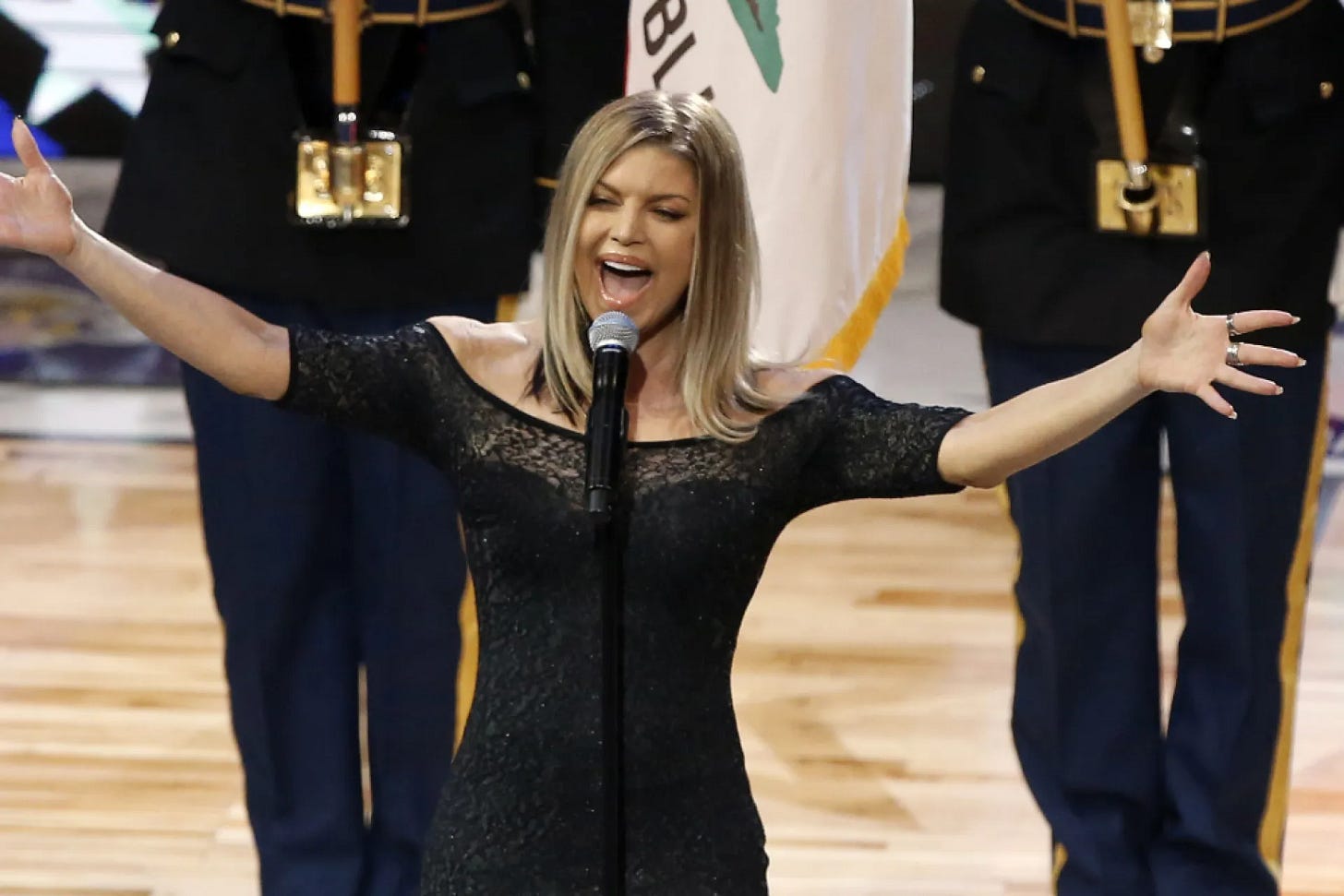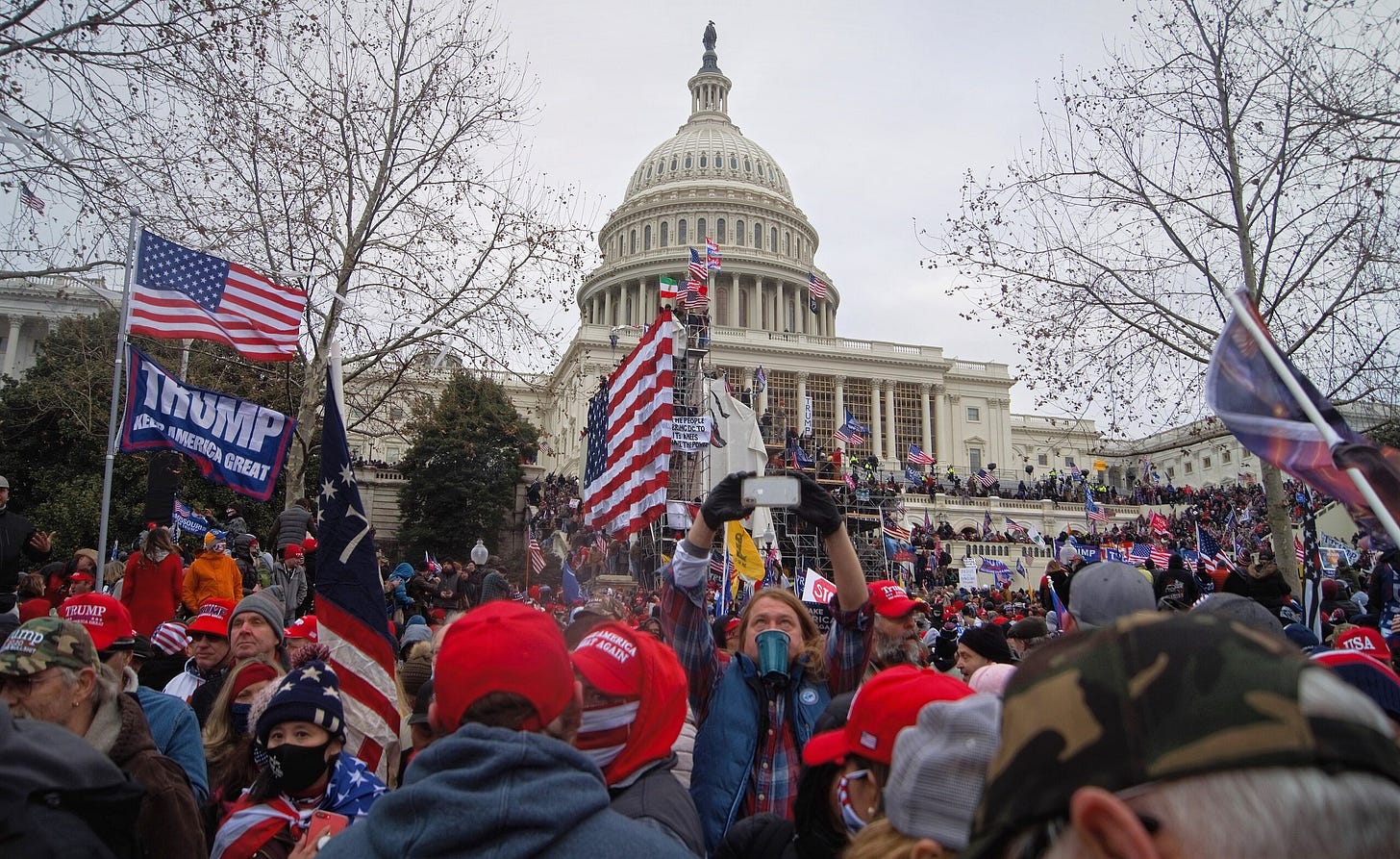Welcome to the inaugural post of CAGE AGAINST THE MACHINE. It's July 18th, 2025, but I started writing this post back on July 4th. Like many of you, I’ve been struggling with what “Independence Day” means in our 2025 version of the United States of America. So naturally, I'm turning to Nicolas Cage for guidance.
National Treasure as a July 4th Meditation
Twenty-one years ago, Nicolas Cage's Benjamin Franklin Gates broke into the National Archives and stole the Declaration of Independence—to save it from actual thieves, of course. It was peak mid-2000s Disney adventure filmmaking: earnest, optimistic, and easy to watch without much thought.
But we’re gonna give it some thought. Because here’s the thing: the film was also built on the radical premise that America's founding documents were worth protecting because they represented something genuinely precious.
Watching National Treasure in 2025 feels like archaeological work. Not just because of the Nokia phones and pre-Game of Thrones Sean Bean, but because of its unironic faith in American ideals. The film treats the Declaration like a sacred text, worthy of chase sequences and Jerry Bruckheimer explosions. Ben Gates doesn't just steal the Declaration—he reveres it, protects it, and believes in it.
That kind of uncomplicated patriotism now feels almost quaint. This year, Independence Day arrives weighed down by the lessons we've learned (and are still learning) about our country's failures and contradictions. July 4th has become a fraught, polarized, and painful occasion. For many, including myself, it's hard to celebrate when the founding ideals feel, at best, like outdated, moralistic platitudes rather than living principles.
Okay, I’ll stop speaking in code. Our president is an aging, unhinged egomaniac. We’re sliding further and further toward a dictatorship. We’re supporting multiple genocides around the world. And our government is forcibly kidnapping, abusing, assaulting, and deporting people for no reason.
America is a fucking mess. You know it, I know it, and in all likelihood, Nic Cage knows it.
The American Dream?
As the son of an immigrant, my relationship with patriotism has always been complex. Like many others, my mother’s family came here believing in the promise that America was a place where hard work and determination could build something better. She raised me with a fierce love for this country that was also clear-eyed about its flaws, grateful for opportunities while never forgetting the struggles that brought us here. It's a patriotism that's both more fragile and more durable than the flag-waving variety—one that sees America as an ongoing project rather than a finished product, worth fighting for precisely because it's still becoming itself 249 years later, and may never quite reach its full potential.
That’s a long-winded way of saying that I used to believe we shouldn’t talk too badly about our country. I was so grateful to be an American, and therefore, I thought there was no room for criticism. Here’s an example of how much of a weirdo I used to be about it:
When I was a teenager, my parents allowed me to host a Super Bowl party in their basement. We had a big-screen TV down there, and I went out and got a bunch of chips and dip, wings, sodas, the whole shebang. As many of you know, before most major American sporting events, someone famous and/or talented sings the National Anthem.
I can’t remember who sang it that year back in the mid-2000s, but what I do remember is demanding silence from my amped up, caffeine-addled teenage friends in that basement. They were going to shut up and listen to the National Anthem, like it or not.
Unhinged, right? I was sixteen. That’s fucking nuts. But that was my perspective at the time. Things have changed for me. I don’t feel that way anymore. As an adult, America isn’t what I thought it was going to be, and I’m not afraid to shit-talk it a little bit. America, as a concept and as an institution, can more than handle a little bit of criticism. Also, America ain’t a person, so it can’t hear me talking shit anyway. And I mean…it’s well-deserved lately.
But back to National Treasure…
Here's where Cage's particular brand of committed sincerity offers unexpected wisdom.
National Treasure works because Ben Gates (as played by Cage) isn't naive—he's fully aware that powerful people will corrupt and exploit these sacred documents for their own gain. Sean Bean’s betrayal doesn’t seem to shock him, and that isn’t bad acting—it’s a specific choice. The delightfully corny Bean wants to literally steal the Declaration for his own personal gain. In 2025, certain individuals no longer need to steal the physical Declaration. They can rob us of our freedoms in more nefarious ways.
Our hero’s response to Sean Bean isn't to be completely aghast and dumbfounded, but it also isn’t to become cynical or abandon his gloriously misguided treasure hunt. No, no. Instead, he commits completely to protecting what's worth saving, even if it means becoming a criminal in the process.
This is peak Cage philosophy: when the system is broken, you don't give up on the ideals—you steal ‘em yourself.
Gates approaches American history with the same intensity Cage brings to every role. He memorizes every detail, follows every clue, and refuses to accept surface-level explanations. When everyone tells him he's crazy for believing in hidden treasure, he doubles down. When the FBI thinks he's a terrorist, he keeps going. When Sean Bean threatens his family, he gets more determined.
Maybe that's what patriotism looks like in 2025—not blind faith in institutions, but Nicolas Cage-level commitment to the principles those institutions are supposed to protect. It means refusing to let cynicism win, even when cynicism is justified. It means believing that the treasure is real, even when the map has been torn up and scattered.
Reverence.
The film's most telling moment comes when Gates first holds the Declaration. He doesn't read it—he recites it. Right?
Wrong. Watch it again. He eulogizes the Declaration, his voice carrying the weight of someone who's internalized every word and come to despise those who would deploy those words improperly. He speaks the words as though the concepts are firmly in the past. "We hold these truths to be self-evident, that all men are created equal..." In Cage's delivery, these aren't just historical artifacts. They're promises we're still trying to keep—promises he’ll fight for.
This July 4th, I’m not celebrating. And I’m not thinking about America as it is. I'm thinking about America as Ben Gates sees it—as a treasure worth stealing back from those who would exploit it, worth protecting from those who would destroy it, worth believing in (at least a tiny bit) even when the evidence suggests otherwise. I won’t be surprised by the horrors, and I also won’t let them keep me from fighting for my home. Maybe it’s naive. Maybe it’s a little privileged. But it’s where I’m at, and I told y’all I’d be honest here.

Okay, wrap it up.
If Nicolas Cage has taught us anything, it's that the most radical act might be taking these ideals seriously enough to fight for them. Not with exhausted pessimism or naive optimism, but with the full-throated commitment of someone who's done the research, followed the clues, and decided that some things are worth the risk.
The treasure is real. The map is just really fucking hard to get. And sometimes, to save what matters, you have to be willing to steal it back. And go through hell to find it. And, y’know, go into a cave that leads to a room that leads to another room where there might be a switch. And somehow figure out that it all comes down to using your weird little ship-pipe-key thing.
In other words, fight for your idea of America. And do it with all the resources you have. The portion of the Declaration that Gates chooses to read is also telling. There were actually a few cheeky articles and Instagram posts about it.
“But when a long train of abuses and usurpations, pursuing invariably the same Object evinces a design to reduce them under absolute Despotism, it is their right, it is their duty, to throw off such Government, and to provide new Guards for their future security.”
He follows it up with, “People don’t talk that way anymore.”
Maybe they should. Right now.
A bonus, tangentially related thing…
Watch Whitney Houston’s rendition of the National Anthem from back in ‘91, and tell me you don’t get emotional. I mean, come on.
Next week: my in-depth analysis of why Nicolas Cage is the greatest living actor—and how it can make us better people. In the meantime, I look forward to hearing from you.









Ok, but the reverence for the anthem thing in the 2000's was also definitley driven by post-9/11 patriotism. Our entire generation was traumatized into thinking being patriotic was THE cool thing to be. Remember Old Navy flag shirts??? They were so cool! What a wild time. Loved this first entry, looking forward to more! (also, I just happen to be wearing my "which cage are you" shirt today lol